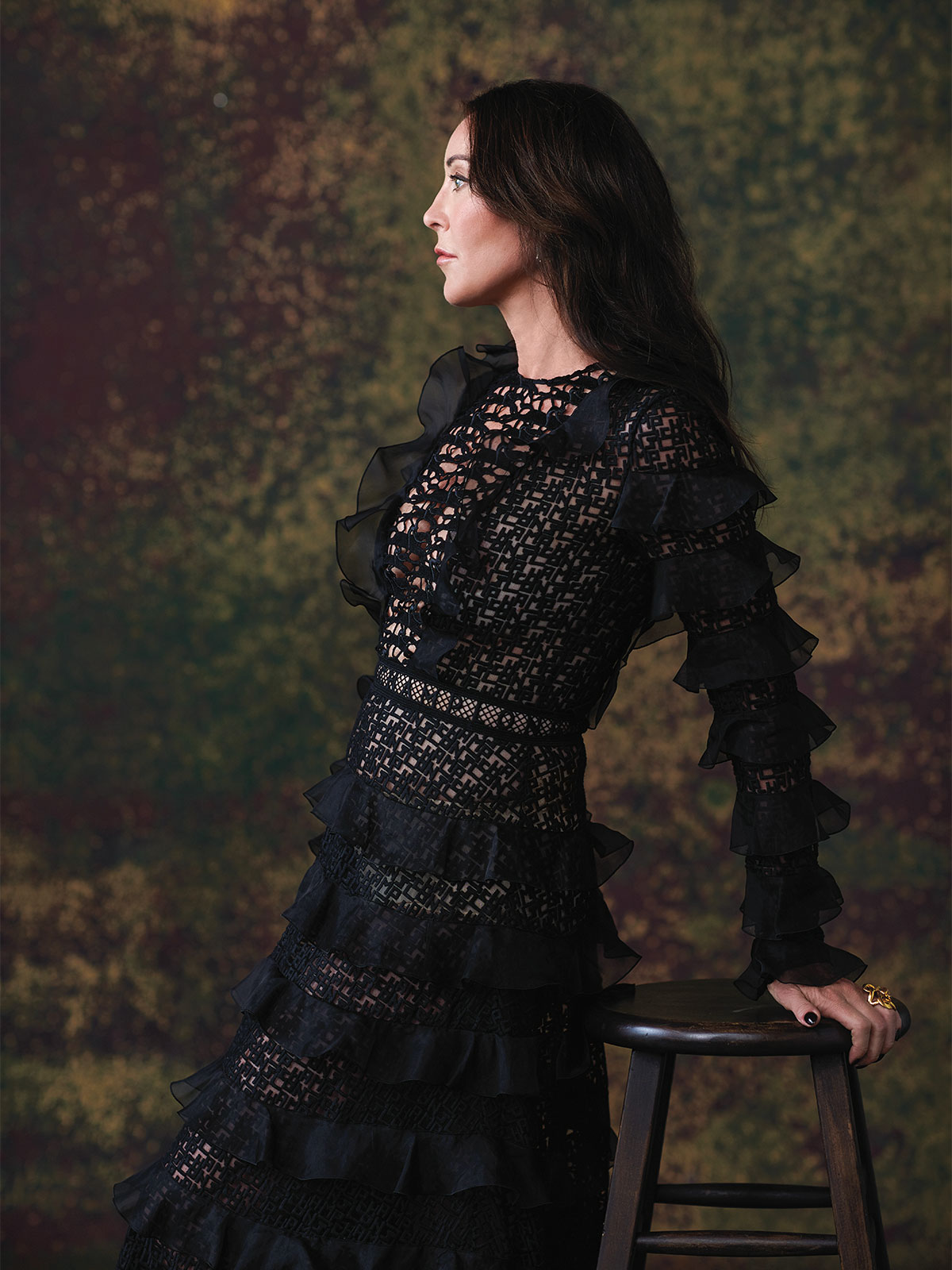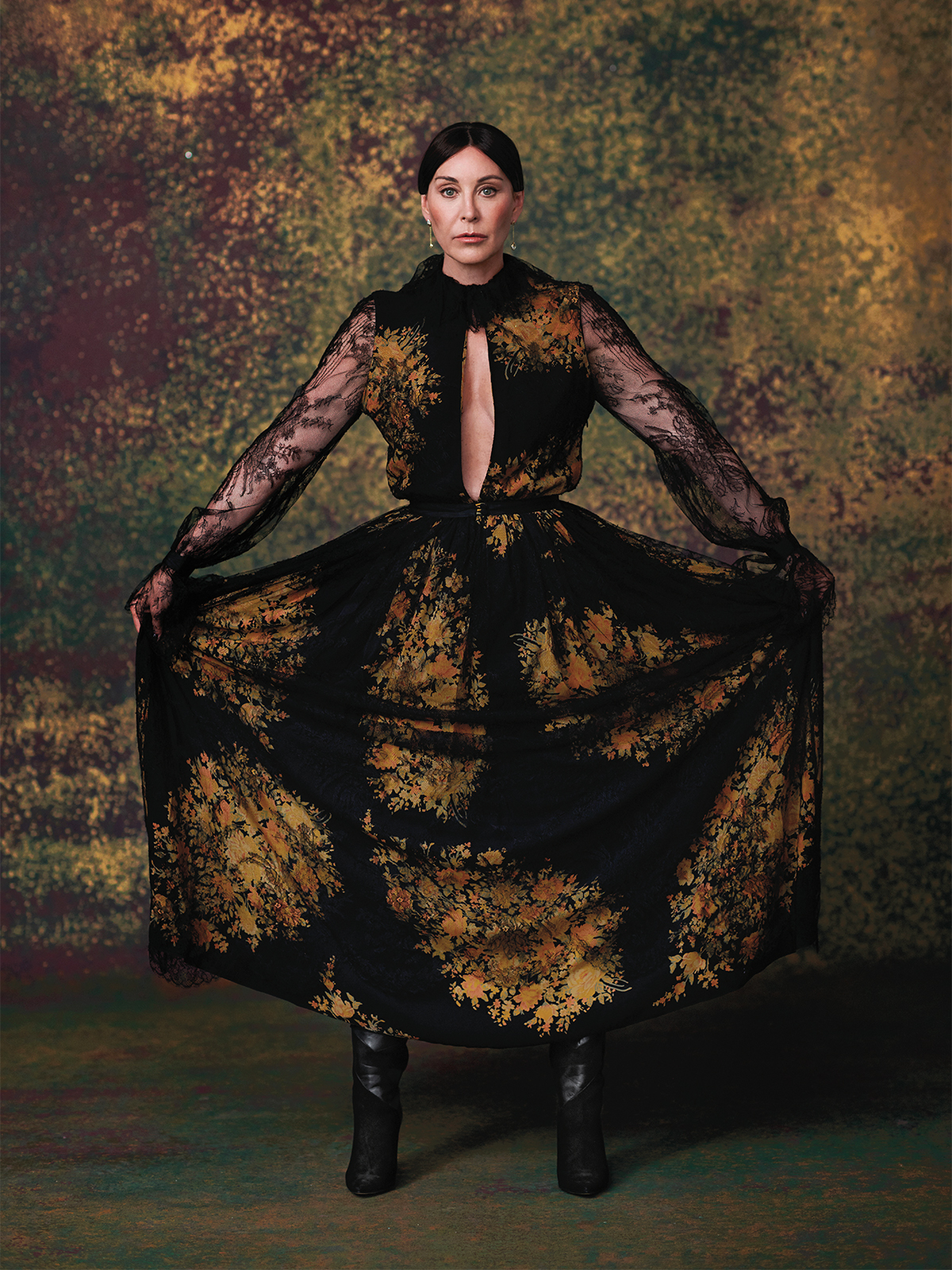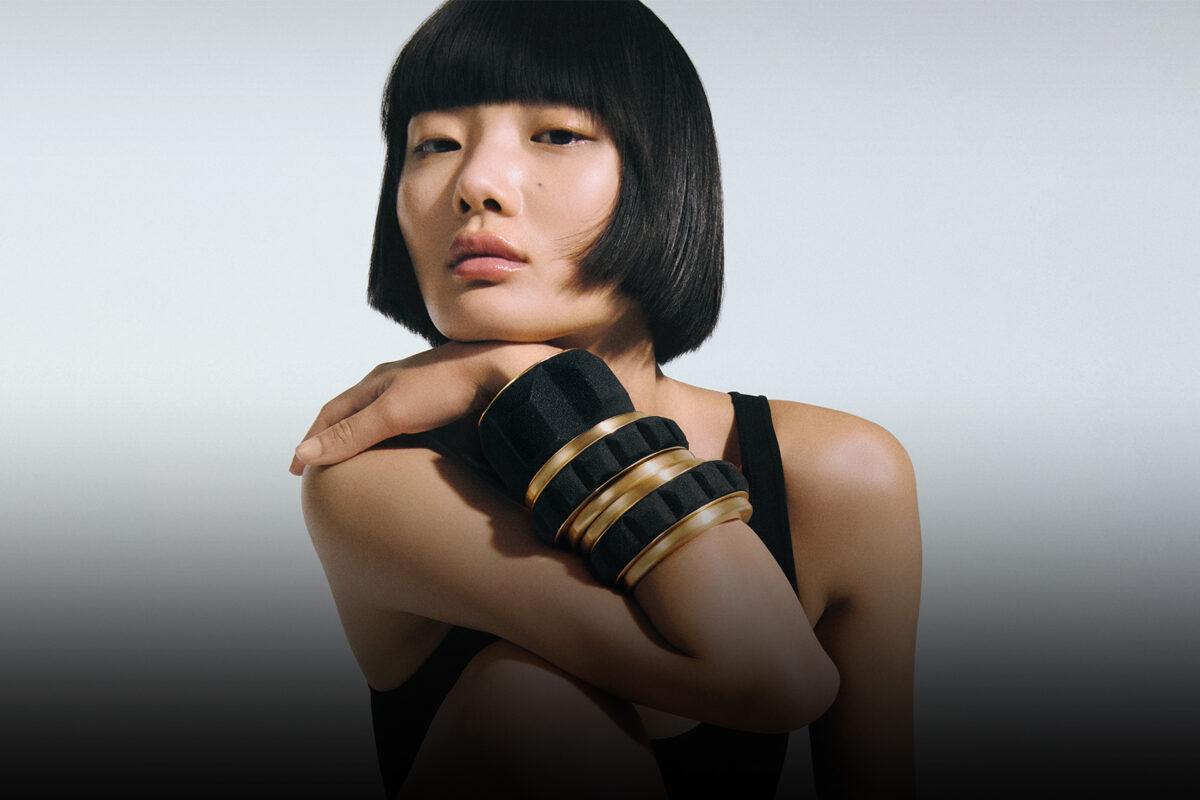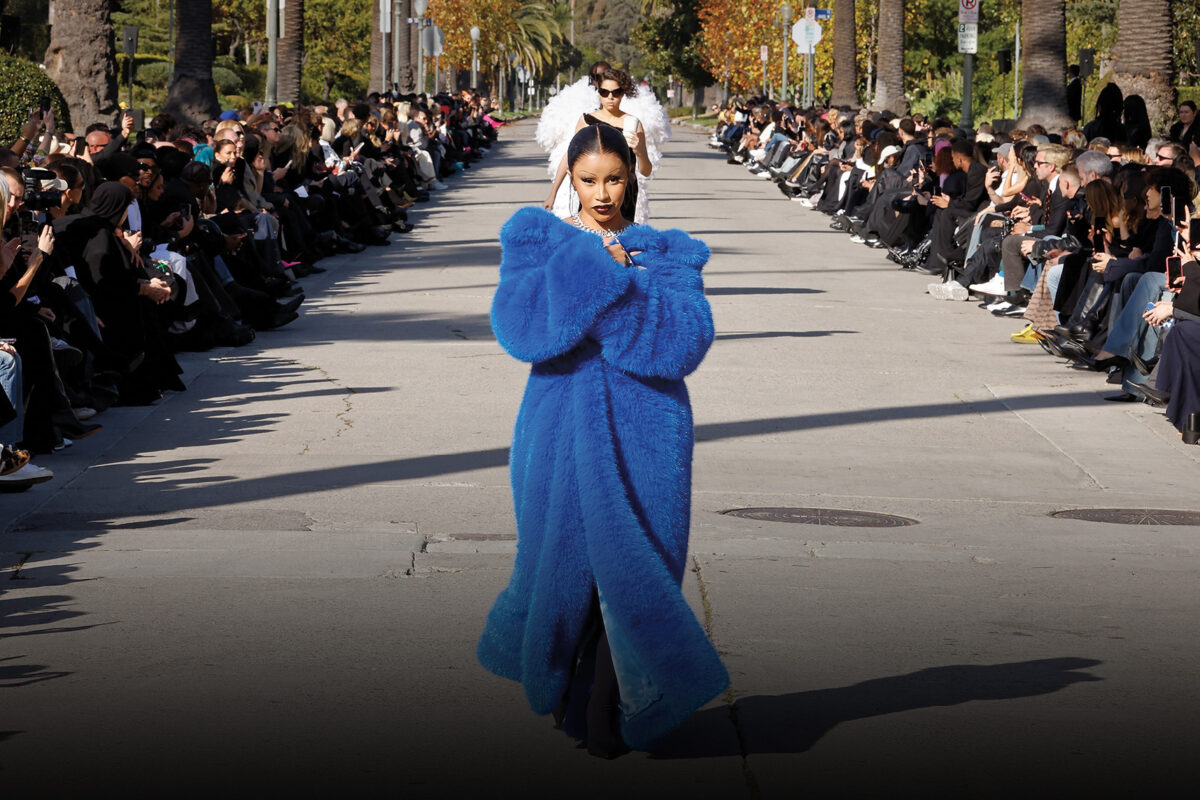Four years on from filing for bankruptcy, the Jimmy Choo co-founder has raised $87 million for her eponymous brand. So what’s her next step?
Words by CHRISTINA BINKLEY
Photography by AMANDA DEMME
Creative & Fashion Direction by ALISON EDMOND
You might not expect Tamara Mellon’s office to stock McCann’s instant oatmeal packs and Sun Chips in the break room. After all, this is the woman who famously launched Jimmy Choo — the brand’s sexy heels being one of the world’s most recognizable symbols of luxury — over two decades ago. But today, her new eponymous label’s headquarters on Beverly Boulevard in Los Angeles reflects a ruthlessly efficient startup culture: There’s a Peloton exercise bike in a corner, and the only private office is occupied by the four-member customer service team. Mellon’s desk, meanwhile, is smack in the middle of the open-plan layout, surrounded by orderly rows of Eames-style chairs and white tables that the cost-conscious company purchased from Wayfair.
“There are no luxury brands that are direct-to-consumer. We’re pioneers in this space”
The lean office culture is an example of Mellon’s new approach to the luxury business. She recently completed her third round of funding, which raised $50 million — one of the largest funding rounds for a female-founded fashion brand ever, bringing the total raised to $87 million. “To be honest, it was absolutely brutal,” Mellon says, settling into a low white sofa in a meeting room that was likely designed to be the CEO’s office. “Most of the people we were pitching were white middle-aged guys who had no emotional investment in the product.”
At 52, Mellon is well on her way to establishing her second powerhouse upmarket footwear label. Her concept is to do what she has done before, but for the modern age: designing impeccably crafted Italian-made shoes and, this time, selling them direct-to-consumer — cutting out the middlemen, the wholesale accounts and the department stores. That also means redefining high-end service in ways that can be delivered online — while there won’t be traditional sales associates, there will be a cobbler service to repair shoes for up to two years after purchase. And if you’re looking for something specific, one of the style- and digitally savvy associates in customer service will compile a list of options and share it via email, text, WhatsApp, or Facebook Messenger. There’s even a Slack channel available for customers who want to comment or ask questions.
Mellon founded this version of Tamara Mellon in 2016, but it’s actually her second attempt at the label. A more traditional foray launched in 2013 sold wholesale to department stores but left her filing for bankruptcy two years later. Mellon learned the hard way that fewer people are shopping in department stores today — and that conventional wholesale models hamstring labels with markups that lead to high retail prices. When she applied her aspirational designs to the sort of business models being pursued by direct-to-consumer brands such as Allbirds and Rothy’s, business took off, growing 136 percent in 2018 over 2017. “There are no luxury brands that are direct-to-consumer. We’re pioneers in this space. So maybe we’re a little early,” she says. The brand has one brick-and-mortar store, which opened last year in Palisades Village.
For the past eight years, Mellon has been in a relationship with CAA co-founder and former Hollywood mega-agent Michael Ovitz. She has a daughter, Araminta, 17, with the late banking heir Matthew Mellon, and she credits “Minty” with helping her fathom the way young consumers shop and divine the next trend. “If we’re talking consumerism, they don’t discover brands the same way. They discover everything on Instagram.”
Armed with a better understanding of the consumers who are driving fashion’s future, Mellon says she is shooting high for her brand. “We plan on being a billion-dollar company. That’s the vision,” she says coolly.
To build it, she also eschewed the typical luxury brand approach, starting with bringing on co-founder and chief executive Jill Layfield, the 44-year-old former chief executive of Backcountry, an online purveyor of outdoor apparel. It’s an unlikely pairing in every way imaginable, beginning with their own shoe preferences. While Mellon can often be found in towering heels, Layfield is more likely to sport a pair of Tevas (though she makes an exception for Tamara Mellon sneakers). Before moving to L.A. in 2016, Layfield lived in Park City, Utah, and wore Patagonia hiking dresses to work. Layfield says she was initially nervous about meeting Mellon. “I’d read a lot about her and thought, ‘Oh my god, she’s a fashion person. What’s she going to be like?’”
For their new venture, Mellon plumbed her contacts at Italian factories and turned to the same manufacturers as famous luxury brands, but instead of carrying a six-time retail markup, Tamara Mellon footwear prices mainly range from $350 to $995. “We really sit in a sweet spot alone right now. The legacy brands are retail- and wholesale-heavy,” she says.
“We plan on being a billion-dollar company. That’s the vision”
Mellon, who came to fashion via working at magazines rather than design school, is known for her crystal ball, having anticipated trends such as platform ankle boots in the early 2000s. These days, she’s doubling down on casual shoes — sneakers and Dr. Martens-style boots. She is also nerding out on data, which is already telling her that people like buckles more than ankle ties, that a 90-millimeter heel is the most popular height, and that discerning customers prefer to shop Monday through Thursday, leaving the weekends for family. In true tech startup fashion, she’s hired supply-chain experts to speed production and build a data-science crew that she expects to soon number 10 analysts and engineers. She plans to use data for product testing, putting new styles on tamaramellon.com, ordering enough supply for three weeks, then replenishing according to how each style sells. Furthermore, Mellon no longer follows the collections-driven model she used at Jimmy Choo, which she co-founded in 1996 and built into a fashion juggernaut. “I don’t design collections anymore,” Mellon says. “We put out new shoes every week.”
It’s a significant shift in the long arc of her career. Mellon was born in 1967 to the late Thomas Yeardye, an actor and stuntman who co-founded the Vidal Sassoon chain, and Ann Davis, a former Chanel model in the 1960s. They moved to L.A. when she was in elementary school, and she had been living between London and New York for most of her life before settling back in L.A. While working at British Vogue in her early 20s, Mellon became a face on the London scene — a reputation that garnered many a U.K. tabloid headline. In a later book, In My Shoes: A Memoir, she wrote about drinking and snorting cocaine until 1998, when she wound up in a Narcotics Anonymous meeting in which she met her husband-to-be, Matthew Mellon.
While working as an editor, she also discovered that well-heeled women in London, like Princess Diana, were buying shoes from a Malaysian cobbler in a tiny shop in the city’s East End. His name was Jimmy Choo. Mellon received a loan from her father and partnered with the cobbler to launch the shoe brand, which became a fixture, along with Manolo Blahniks, on Sex and the City. She sold a majority stake in the company in 2011 to Labelux (Jimmy Choo is now owned by Capri Holdings, which also owns Michael Kors and Versace). Though they remained friends, in 2005 she divorced Matthew Mellon, who tragically died last year on a trip to a drug rehabilitation center in Mexico.
After a high-profile relationship with the actor Christian Slater ended about 10 years ago, Mellon met Ovitz, 20 years her senior, whom she calls her “life partner.” “It’s very hard at this age. ‘Boyfriend’ sounds ridiculous,” she says. “‘Fiance’ says you’re going to get married.”
She lives with Ovitz and Minty — juggling her design world with mothering a teenager, who has a busy schedule and social media interests of her own. Minty has roughly 2,700 followers on Instagram and has been receiving gifts from brands hoping she’ll post about them, but she has shown no interest in becoming an influencer. “That’s her call. Totally,” Mellon says. “She’s much more interested in business — in being on the other side of the table. More the CEO than the designer.”
Mellon also has her eyes on a shifting future. She has put her name on this company, which means that if she sells it, as she did Jimmy Choo, she would also be selling the rights to the moniker. But the prospect doesn’t scare her. “I’m OK with it,” Mellon says, looking sanguine. “In 10 years time, I’ll be very happy for succession plans.”
Hair by CHRISTIAN MARC at Forward Artists using Leonor Greyl
Makeup by SILVER BRAMHAM at Art Department using Make Up For Ever
Manicure by EMI KUDO at Opus Beauty using Chanel Le Vernis
Production by CAMP PRODUCTIONS
This story originally appeared in the September 2019 issue of C Magazine.
